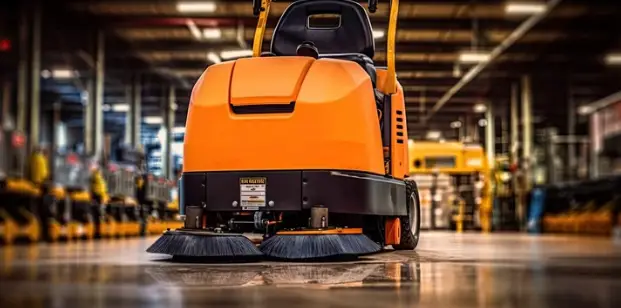In today’s fast-paced industrial landscape, buying second-hand industrial equipment has become a popular choice for businesses looking to save money without compromising on quality.
However, it’s crucial to approach this process with caution and thorough consideration to ensure that you make a smart investment.
In this article, we’ll provide you with valuable tips on buying second-hand industrial equipment while keeping your budget in check.

1. Research and Identify Your Needs
Before diving into the world of second-hand industrial equipment, take some time to understand your specific needs. What type of equipment are you looking for? What are the essential features and specifications? Conduct thorough research to identify the make and model that best suits your requirements. By clearly understanding your needs, you’ll be better equipped to make informed decisions.
2. Reliable Sources
One of the most critical aspects of buying second-hand industrial equipment is sourcing it from a reputable seller. You have several options, such as online marketplaces, equipment dealers, auctions, or even networking within your industry. Look for sellers or platforms with a history of positive reviews and satisfied customers. This will help you avoid potential scams and ensure the equipment’s quality and authenticity.
3. Inspect and Verify
When you find a potential piece of industrial equipment, inspect it thoroughly. Check for visible signs of wear and tear, damage, or rust. Don’t hesitate to ask for maintenance and service records. A well-documented history can give you insights into how the equipment has been maintained over time. If possible, bring along a knowledgeable technician or engineer to assess the equipment’s condition and functionality.
4. Test Before You Invest
Whenever possible, arrange to test the equipment before finalizing the purchase. This will allow you to verify that it operates as expected and meets your requirements. Pay attention to factors such as noise levels, speed, and any unusual vibrations. Testing ensures that you are not buying equipment that will require significant repairs or upgrades immediately after purchase.
5. Negotiate the Price
Negotiation is a common practice when buying second-hand industrial equipment. Sellers often expect some haggling, so don’t be afraid to negotiate for a better price. However, be reasonable and fair in your negotiations to maintain a positive relationship with the seller. Keep in mind that a lower upfront cost can leave room in your budget for any necessary repairs or upgrades.
6. Warranty and Return Policy
Inquire about any warranty or return policies offered by the seller. While using equipment is commonly sold “as-is,” some sellers may offer limited warranties or return options. These can provide peace of mind and protection in case the equipment doesn’t meet your expectations or encounters unexpected issues shortly after purchase.
7. Consider the Total Cost
When calculating the cost of second-hand industrial equipment, consider the purchase price and the cost of transportation, installation, and any necessary modifications or upgrades. Be prepared for additional expenses that may arise, and factor them into your budget.
8. Safety and Compliance
Ensure that the second-hand industrial equipment you are considering meets all your industry’s safety standards and regulatory requirements. Non-compliance can lead to fines and safety hazards, so verifying that the equipment is in line with current regulations is essential.
Conclusion
Buying second-hand industrial equipment can be cost-effective for businesses looking to expand or upgrade their machinery while staying within budget. By following these tips, you can navigate the process with confidence, ensuring that you make a wise investment in industrial equipment that serves your needs and contributes to your business’s success.
Remember, thorough research, diligent inspection, and careful negotiation are key to a successful second-hand industrial equipment purchase. So, go ahead and explore the market for reliable and budget-friendly options in the world of industrial equipment.




